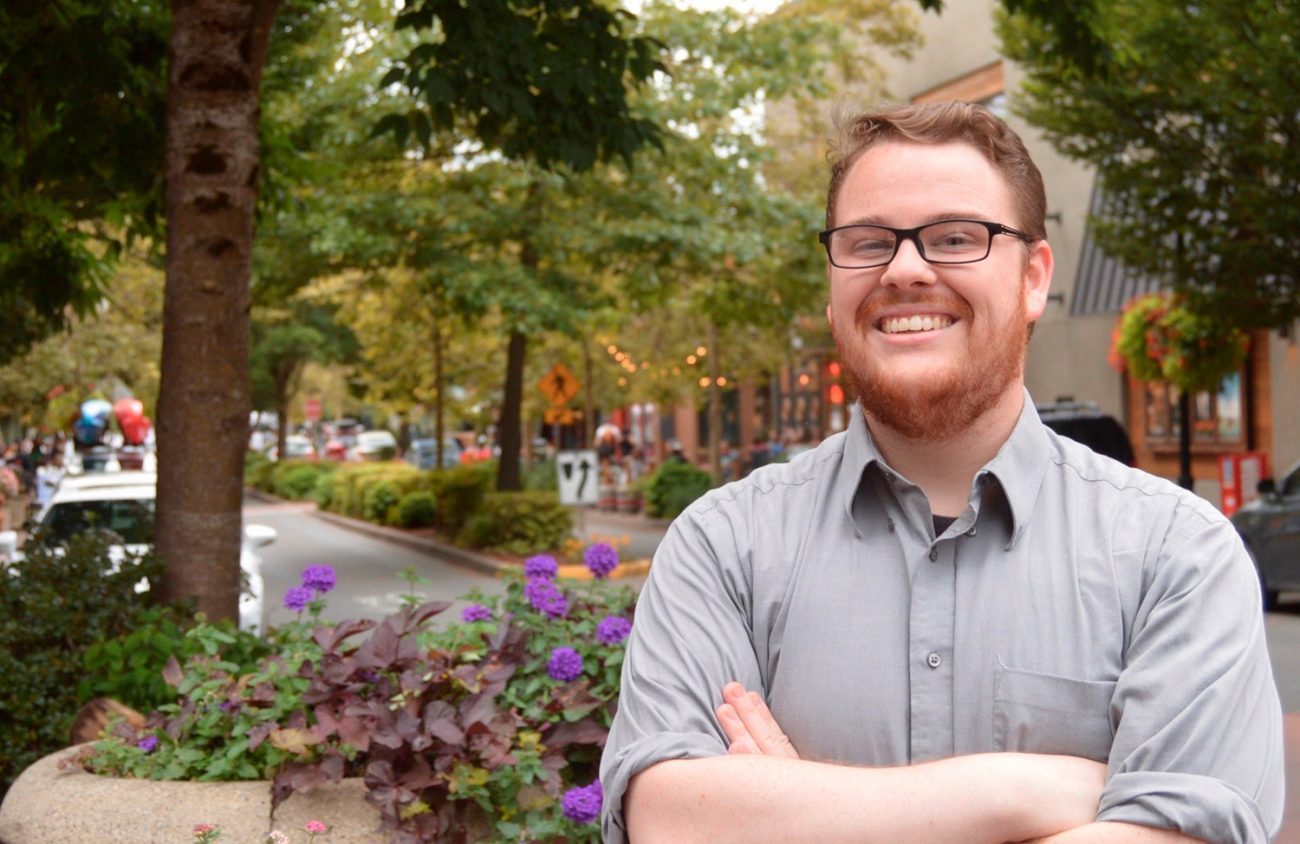Diversity in Oregon means that in addition to the important conversations people, businesses and government agencies in Eugene and Springfield are having about policing and race, local law enforcement also needs to look at cultural diversity, such as the LGBTQIA community, who often don’t feel protected by the police.
Tim Morris, who ran for Eugene City Council earlier this year, says that as someone who identifies as LGBTQIA, he doesn’t feel like a lot happens when he contacts the police department for issues such as harassment. “I feel like unless there’s significant danger to my life, I tend to just not contact the police. I have contacted the police after being harassed and I was basically told, ‘Good luck with that,’ and hung up on.”
According to UCLA’s Williams Institute, Oregon has the largest number of individuals who identify as LGBTQIA in the U.S., and many of them live in Eugene. But it’s hard to say if law enforcement reflects that demographic because as in most other professions, the sexual orientation and gender identity of police officers isn’t information that is collected by the departments.
When asked about LGBTQIA representation, the Lane County Sheriff’s Office said, “We do not collect that information from employees in our organization.” The Eugene Police Department’s LGBTQIA liaison is Det. Chris White, who said that while he can think of people from command staff to line staff who are a part of the LGBTQIA community, EPD doesn’t take a head count, either.
Deputy Chief Stacy Jepson, who identifies as an LGBTQIA employee at EPD, says she can understand why showing the community just how diverse the police department is can help accountability. “The more transparent we can be as a police department, the better off we are. I certainly think that showing the community that we demographically represent them is very important.”
Jepson returned to her hometown of Eugene last year after 23 years at the Hillsboro Police Department. Jepson says that she has seen the police force culture change significantly since she first started policing in the ’90s — just as society has. While it took her many years to come out to her coworkers, she says the importance of her different perspective, both as a female and LGBTQIA officer, is very important.
“Law enforcement is predominantly a male-run industry so I have that female perspective that is also different,” Jepson says. “I also come from a different sexual orientation than most of the people I work with, so it gives me a different voice in the room. And a very important one.”
Creating a more diverse police force begins with recruiting, which can often be difficult for a field that has discriminated against the LGBTQIA community. Even though transgender people are more likely to be victims of violent crime than non-transgender people, more than 57 percent of respondents to the 2019 U.S. Transgender Survey “feel uncomfortable calling the police for help when they need it.”
In response to Eugene Weekly’s questions, EPD’s recruitment team says in a statement, “We have implemented removing names, age, sex and race information from our testing process,” to reduce potential risk of biases. It says that, “events like the Orlando dance club mass shooting make communities more aware of the discrimination and vulnerability of our LGBTQIA community. These incidents are a time when outreach to our local community is critical.”
EPD’s recruitment team hired a full-time recruitment and background officer in January “geared toward diversity, inclusion and equality,” according to the statement. It says that EPD partners with minority police associations and that the recruitment team has “participated in events including the Women in Public Safety Career Fair, the Eugene Pride Festival, the Eugene Asian Celebration and the Eugene Women’s half marathon.”
LGBTQIA awareness extends not just to the officers employed but to the policies they enact. For example, the policy on recording information during an arrest states that the information to be recorded should include “the race, ethnicity, age and sex of pedestrian or operator of the motor vehicle stopped, based on the observations of the law enforcement officer responsible for reporting the stop.”
The policy does not require officers to ask what an individual’s pronouns are. When asked, Jepson responds that if officers are collecting information on individuals it needs to be accurate, and that there is room for improvement in those areas.
The LGBTQIA community interacts with police at a high rate because it has been one of the most targeted groups for both violent and non-violent hate crimes in Oregon. Twenty-six percent of all hate crimes in Eugene in 2018 were related to sexual orientation or gender identity.
“I often don’t feel safe in Eugene. There’s people that drive by and scream slurs at me. There’s certain parts of the city I’m just not welcome in,” Morris says. “And a part of the reason for that is a lack of safety from the police department.”
Additionally, six of the 10 hate crimes involving physical violence in 2018 were motivated by the sexual orientation of the victim, according to the city of Eugene’s 2018 Hate and Bias Report. “The percentage of physical violence cases motivated by the sexual orientation of the victims more than doubled in comparison to 2017,” the report says.
Jepson says the challenges that come with identifying as LGBTQIA have still affected her and others, both in the workplace and society. “I know several male gay officers that really have struggled to come out and share who they are and be open about who they are. I worked with one for a very, very long time that I knew he was gay but no one else did and he was really reticent to share that. So I think that still exists and there’s still room for growth in that area.”
